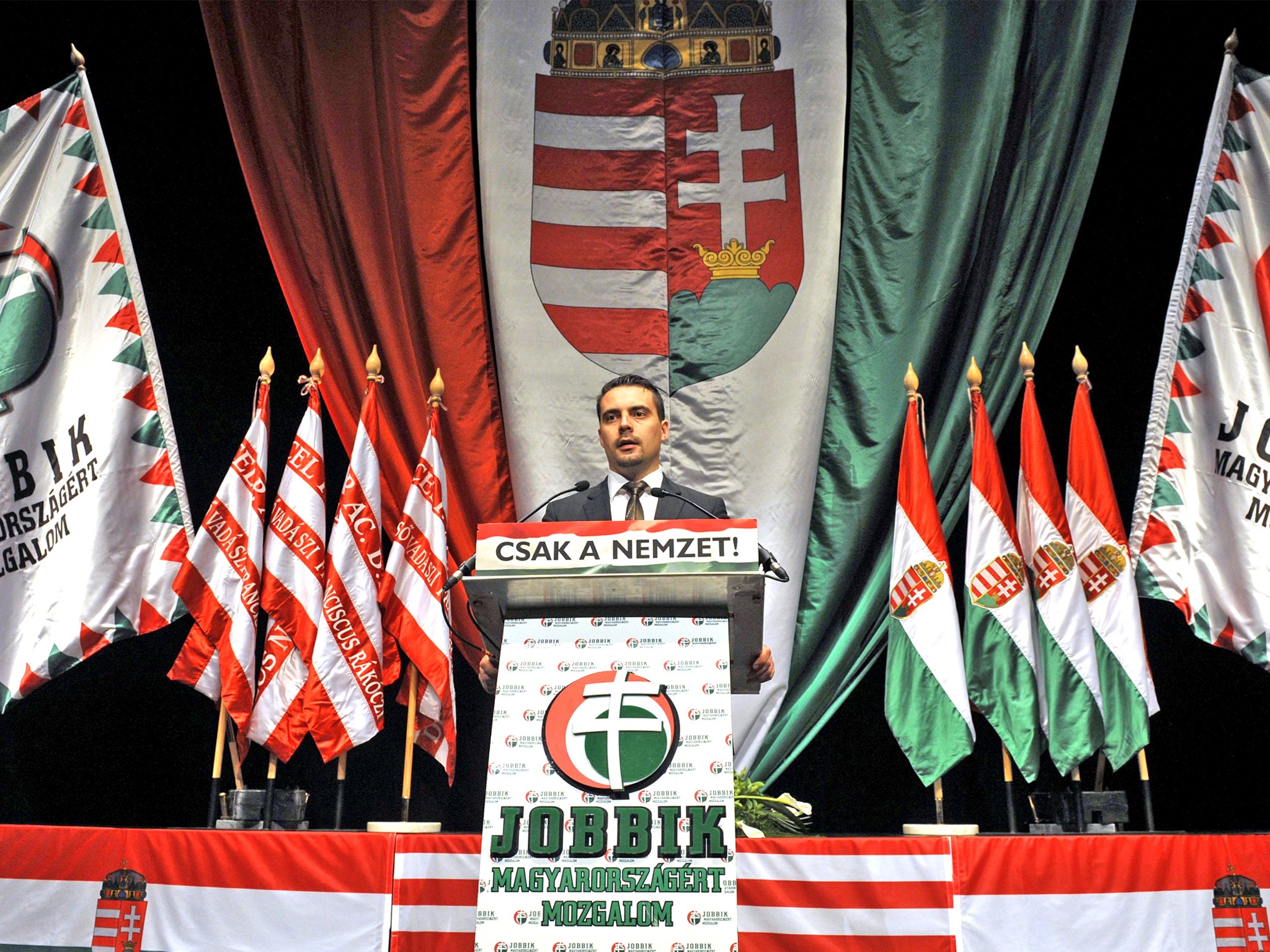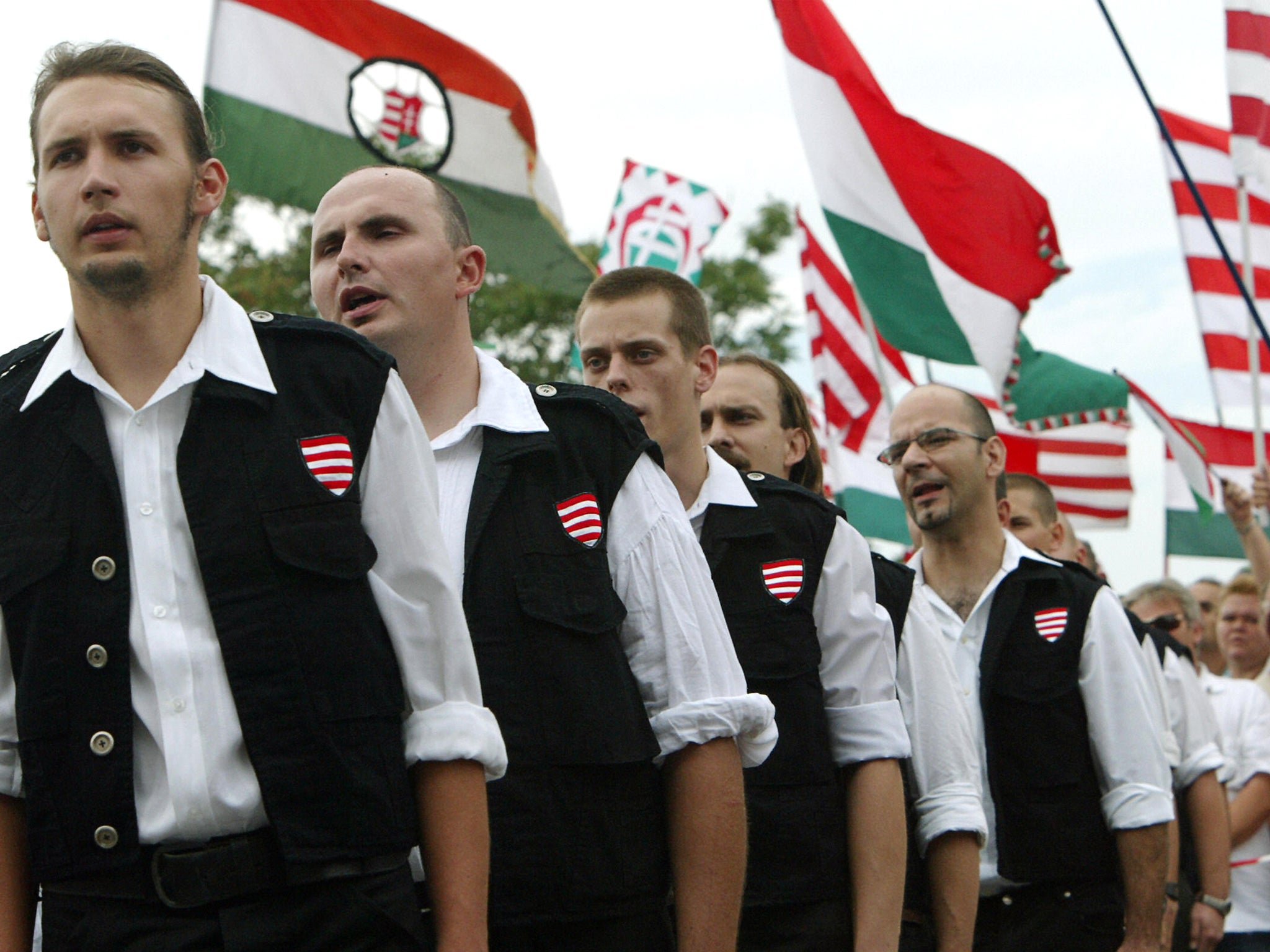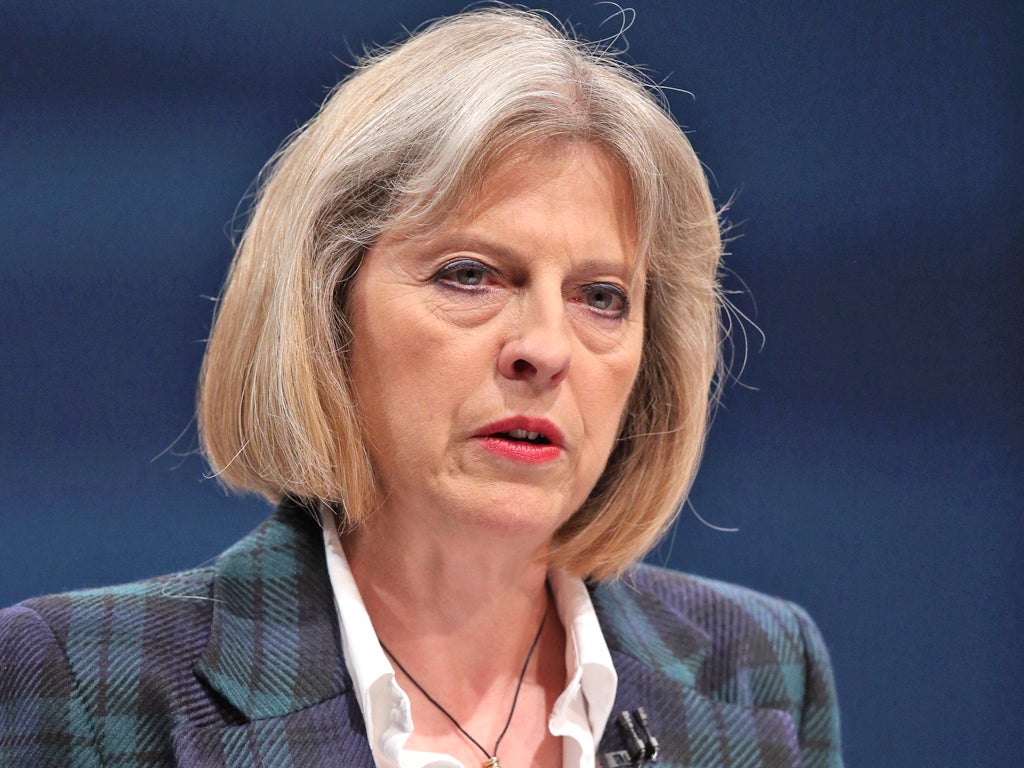Rise of the right: Theresa May under pressure as the leader of ultra-nationalist Hungarian party Jobbik prepares UK visit
The Home Secretary is under increasing pressure from Jewish groups and others to ban the Hungarian ultra-nationalist party from spreading hatred at a London rally this weekend

Theresa May is under growing pressure to ban the leader of an extreme Hungarian nationalist party from entering Britain to host a rally in London this weekend.
Gabor Vona, who used his new year message earlier this month to call for the chemical castration of criminals, is due to address “sympathisers” of his far-right party, Jobbik, on Sunday to drum up support among expat Hungarians ahead of national and European elections in the coming weeks.
Jobbik officials denied that Mr Vona, whose party is accused of seeking to legitimise virulent anti-semitic and anti-Roma views in Hungary, will use his visit to meet leaders of the British National Party and the Greek Golden Dawn movement, whose members have expressed admiration for Hitler.
Nick Griffin, the BNP leader, said last month that the three parties had a “common core set of values” and he was seeking a formal alliance with Golden Dawn and Jobbik, which is Hungary’s third largest party, for the European Parliament poll in May.
The expected arrival in London of the leader of Jobbik, which has 43 seats in the Hungarian parliament and three in the European Parliament, is the source of deep upset among Jewish groups, politicians and members of Britain’s 100,000-strong Hungarian population.
Andrew Dinsmore, a former Labour MP and now a member of the London Assembly, has written to Mrs May asking for Mr Vona to be banned from entering Britain and for Scotland Yard to intervene to prevent the Jobbik gathering in central London, due to be held a day before the annual Holocaust Memorial Day.
He said: “The Home Secretary must take a stand to stop Jobbik’s message of hate being broadcast on the streets of London. Jobbik are the most powerful outwardly fascist political party in Europe. Their level of support in the Hungarian elections shows how their message of hate has spread.”
A Facebook page for the event showed that 57 people have so far declared their intention to attend, including a woman describing herself as a children’s music teacher in east London. Another supporter said he would be travelling from Bristol by coach.

In a letter to Mrs May, Jewish leaders backed the calls for a ban, saying that the arrival of Mr Vona and a fellow Jobbik MP, Sandor Porze, would be “an affront to the values we hold dear and is disturbing to the British Jewish community, as well as other minorities”.
The statement on behalf of four leading Jewish groups, including the Board of Deputies, implored Mrs May to make “every effort to prevent these Jobbik representatives from propagating their despicable views and hatred in the UK”.
Hope not Hate, the anti-fascist group, condemned the planned visit, saying it was wrong for Mr Vona to be allowed to voice his “politics of hatred” in Britain.
The Home Office last night declined to comment on the calls for a ban. The Independent understands that a bar on Mr Vona is nonetheless being actively considered under provisions which give the Home Secretary the power to exclude an individual if his or her presence is not “conducive to the public good”.
Scotland Yard said it was aware of the Jobbik rally and “assessing” the information.
Formed a decade ago, Jobbik has rapidly grown by espousing a mixture of anti-globalisation economics, hardline law-and-order policies including the introduction of a “three strikes” rule and a barely-concealed agenda against “Israelis” and Roma people.

In November 2012, Marton Gyongyosi, the party’s deputy parliamentary leader and its leading voice on foreign policy, called for a security register of Hungarian Jewish legislators and ministers. Hungary, which imposed one of the most thorough extermination policies of the Holocaust while under occupation, has a population of about 100,000 Jews.
Mr Gyongyosi said: “I think such a conflict makes it timely to tally up people of Jewish ancestry who live here, especially in the Hungarian parliament and the Hungarian government, who, indeed, pose a security risk in Hungary.”
When the World Jewish Congress held its annual gathering Budapest last year, Jobbik held a rally in the Hungarian capital during which Mr Vona told supporters: “The Israeli conquerors, these investors, should look for another country in the world for themselves because Hungary is not for sale.”
The former history teacher, who at 35 appeals to Hungary’s disenfranchised young, has also frequently used his role to attack Hungary’s Roma population, calling for a special “gendarmerie” to be set up to tackle “gypsy crime”.
He once said: “We must produce an environment in which gypsy people can return to a world of work, laws and education. And for those unwilling to do so, two alternatives remain: they can either choose to take advantage of the right of free movement granted by the EU…or there is always prison.”
Jobbik did not respond to the criticisms but insisted that Mr Vona’s visit to London was intended purely for a Hungarian audience. A spokeswoman said: “This is a forum for Hungarian citizens. This is not to do with anyone else. There are lots of Hungarians living in London and the election is coming up in Hungary.”
A right character: Gabor Vona

Like many far-right politicians, Gabor Vona has an eye for controversial gestures as well as xenophobic politics in the search for electoral popularity.
When he was sworn in as a member of the Hungarian parliament in 2010, the leader of the Jobbik party defiantly wore a black vest reminiscent of those worn by the country’s pro-Nazi groups of the 1940s despite warnings that he could face prosecution.
The garment was part of the uniform of the Hungarian Guard, a vigilante group set up by Jobbik to work alongside police in districts with a high population of Roma Gypsies and subsequently banned.
Born in 1978, Mr Vona was a co-founder of Jobbik in 2003 and became party leader three years later, pushing it to win more than 16 per cent of the vote with a mixture of populist economics laced with attacks on minorities including Jews and Roma.
He denies his party is extremist. In his new-year message to supporters he called for the return of the death penalty and the introduction of chemical castration for sex offenders.
Join our commenting forum
Join thought-provoking conversations, follow other Independent readers and see their replies
Comments